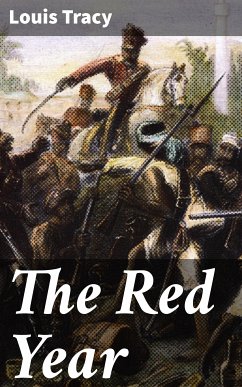
Peter the Priest (eBook, ePUB)
Intriguing narrative of faith, politics, and morality in 19th-century Hungary

PAYBACK Punkte
0 °P sammeln!
In 'Peter the Priest,' Mv=r Jv=kai crafts a rich tapestry of 19th-century Hungarian life, intertwining themes of faith, loyalty, and sacrifice. This historical novel encapsulates the struggles of its titular character, a humble priest navigating the tumultuous socio-political landscape of Hungary during a time of upheaval. Jv=kai's prose blends lyrical beauty with sharp social critique, reflecting the Romantic literary context that characterized much of his work, emphasizing individual agency against the backdrop of societal constraints and historical forces. Mv=r Jv=kai, an influential figure...
In 'Peter the Priest,' Mv=r Jv=kai crafts a rich tapestry of 19th-century Hungarian life, intertwining themes of faith, loyalty, and sacrifice. This historical novel encapsulates the struggles of its titular character, a humble priest navigating the tumultuous socio-political landscape of Hungary during a time of upheaval. Jv=kai's prose blends lyrical beauty with sharp social critique, reflecting the Romantic literary context that characterized much of his work, emphasizing individual agency against the backdrop of societal constraints and historical forces. Mv=r Jv=kai, an influential figure in Hungarian literature and a prominent voice of his era, was deeply immersed in the cultural and political currents of his time. A proponent of national consciousness, Jv=kai's own experiences with political strife and his advocacy for Hungarian independence profoundly shaped his narratives. His embodiment of the Hungarian spirit through fiction not only contributed to national identity but also reinforced his role as a cultural icon during a period rife with change. 'Peter the Priest' is not merely a narrative; it is an invitation to delve into the heart of Hungarian resilience. Readers seeking to explore themes of spirituality and the human condition will find their journey immeasurably enriching in Jv=kai'Äôs skilled hands. This gem of literature is essential for both aficionados of historical fiction and those interested in the complexities of faith and national identity.
Dieser Download kann aus rechtlichen Gründen nur mit Rechnungsadresse in A, B, BG, CY, CZ, D, DK, EW, E, FIN, F, GR, H, IRL, I, LT, L, LR, M, NL, PL, P, R, S, SLO, SK ausgeliefert werden.













